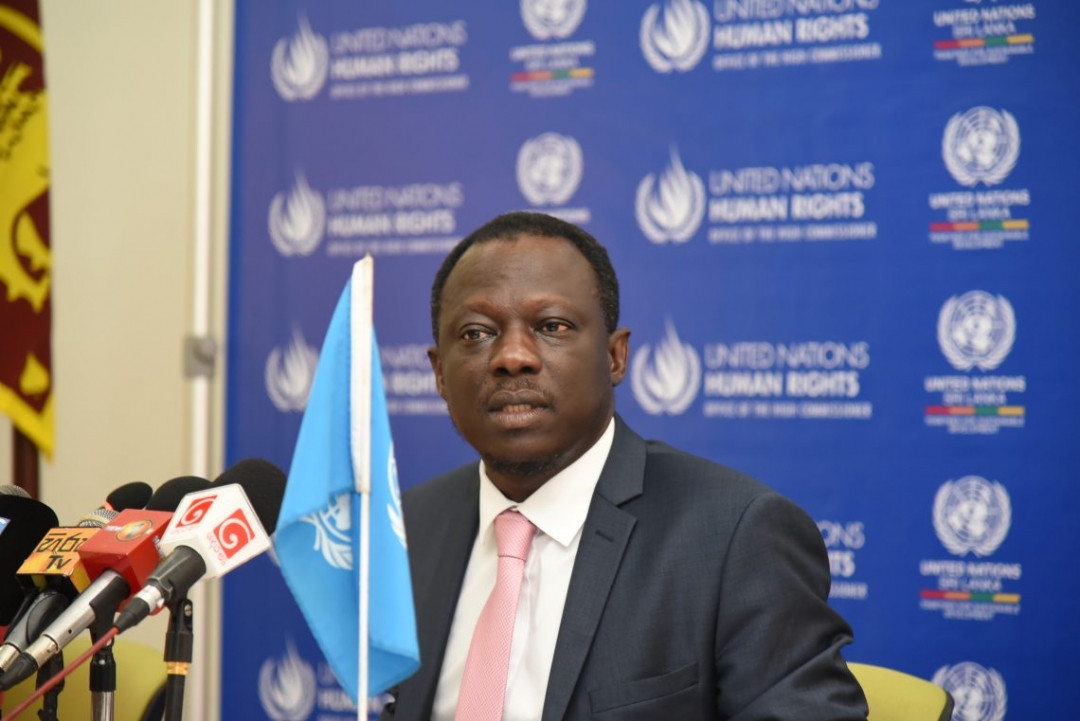UN Rapporteur notes increased surveillance in Sri Lanka in 2019

A UN Special Rapporteur noted that there was increased surveillance in Sri Lanka in 2019, especially after the Easter Sunday attacks. A report submitted to the UN Human Rights Council for its 44th Session, by the Special Rapporteur on the rights to freedom of peaceful assembly and of association, Clément Nyaletsossi Voule, notes that although a decade has passed since the end of the protracted and deadly armed conflict, areas in the north and east parts of the country remain heavily militarized.
As a result, the surveillance structure in the country, especially in the north and east, has remained in place, acting largely independently of Governmental direction, he said in the report He said that following the Easter bombing attacks in April 2019, this surveillance has allegedly increased. The report was based on his visit to Sri Lanka from 18 to 26 July 2019.
The Special Rapporteur said he was seriously concerned about the numerous reports of surveillance that he received from civil society during his visit, including surveillance in online spaces such as social media platforms.
While organizations working on various topics undergo differing levels of surveillance, depending on the perceived sensitivity of the topic, it was reported that almost all organizations were subject to low but regular levels of surveillance. This surveillance included the monitoring of phone calls, visits at home or at work, and photographic surveillance carried out by intelligence services, among others.
“Protests are also frequently surveilled by security forces and intelligence services, including the Criminal Investigation Department, with participants often being subjected to questioning, threats and intimidation before and after assemblies,” he said. In this regard, the Special Rapporteur also heard reports of security forces and intelligence officers frequently entering NGO offices, submitting members to questioning and creating an intimidating environment.
He heard of one instance where the offices of an NGO were visited six times in a two-month period by officers of the Criminal Investigation Department.
Some civil society members also expressed that they had to refrain from conducting home visits, as security forces might follow them to the homes of victims.
The Special Rapporteur is also concerned about allegations that NGO members and participants in assemblies must informally notify security forces and intelligence services before holding events, for fear that they will be shut down otherwise.
At one meeting, he was alerted by civil society interlocutors to the presence of presumed intelligence personnel in civilian clothing, who were observed monitoring participants outside of the meeting place.
At another location, military personnel appeared to have taken note of the number plates of the Special Rapporteur’s vehicle.
“This kind of surveillance is clearly aimed at creating a climate of intimidation, and may be considered as an act of reprisal against the civil society member and human rights defender interlocutors for their interactions with United Nations human rights mechanisms,” he said.
The reports that were shared with the Special Rapporteur during his visit about the surveillance and intimidation experienced by members of civil society and others who take part in peaceful protests are particularly worrying.
The Special Rapporteur said that such surveillance and intimidation creates a climate of mistrust and fear, which leads to self-censorship and has a chilling effect on civic space
